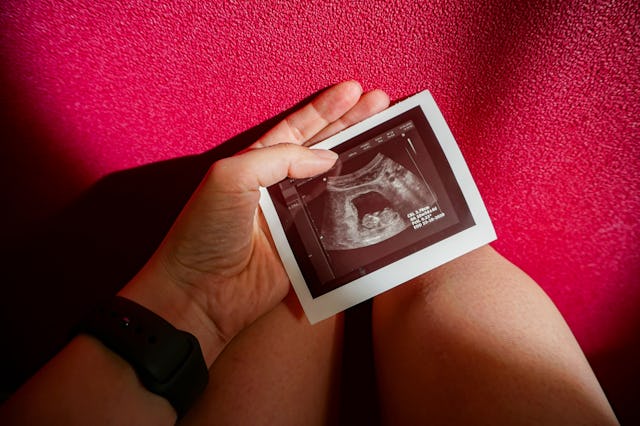Risk Of Early Miscarriage Is Higher In Summer
A study found a 44 percent higher risk of an early miscarriage in the summer months than in February.

Among all the things you definitely can’t control are 1) miscarriage, and 2) the weather. It turns out that the two may actually be connected.
Frustratingly, most pregnancy losses occur without explanation, but a new study suggests that heat — or some other summertime issue — could be a contributing factor in some cases.
A new study from the Boston School of Public Health published in the journal Epidemiology found that pregnant people in North America had a 44 percent higher risk of miscarriage in the first 8 weeks of pregnancy during summer months than they did in February. Risk was highest in late August, as well as in the South and the Midwest, suggesting a connection with high temperatures.
“Any time you see seasonal variation in an outcome, it can give you hints about causes of that outcome,” said lead author and professor of epidemiology Amelia Wesselink. Finding this increased risk of miscarriage in summer months, she said, means “we need to dig into that more to understand what kinds of exposures are more prevalent in the summer, and which of these exposures could explain the increased risk of miscarriage.”
“We know that heat is associated with higher risk of other pregnancy outcomes, such as preterm delivery, low birth weight, and stillbirth,” explained Wesselink. In thinking about climate change and related threats to public health, she said, officials should consider the effects of rising temperatures on pregnant people.
Researchers analyzed data collected from the School of Public Health’s Pregnancy Study Online, which enrolls people trying to conceive and follows them through 6 months post-delivery. All in all, 6,104 participants conceived during the study, which was unique in that it wasn’t limited to fertility patients or those who had seen a medical provider, meaning that it was able to count early miscarriages that previous studies might have missed.
The next step after this study is to move on from correlating miscarriage and the summer months to finding the cause of the increase.
While there is no guaranteed way to prevent a miscarriage, which occurs in at least 10-20% of all pregnancies, it’s always a good idea to stay cool and avoid heat exhaustion. And if you can spend those last two weeks in August catching a breeze somewhere, hanging in the AC, or lounging in the shade with an iced drink in your hand, well, that couldn’t hurt, either.
It’s important to note that anti-vaxxers are using this study to spread misinformation that COVID-19 vaccines given to women in the spring are causing a rise in miscarriage numbers — and that researchers are covering it up by blaming summer heat. This is not true — this study took place over 7 years, from 2013 to 2020, long before COVID was around. In addition, other adverse pregnancy outcomes have long been tired to the summer months as well.